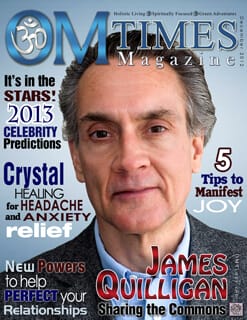Sharing the Commons: Humanity’s Collective Heritage

James Quilligan: I first discovered the commons through the work of Elinor Ostrom [i] and then found many others in this field. The commons seemed to me like the missing link in international development, which only people working at the grassroots could really understand. My colleagues and I had always said that local people must undertake development for themselves to be self-empowered – and here was the commons movement not only dedicated to this principle but actually showing how it’s done! It’s true, traditional societies, which practice co-operation, have always figured out ways of addressing their own challenges of resource distribution. People have always been able to produce and manage their own resources and share them in their communities. These traditional commons include rivers, pastures, forests and indigenous cultures, and now there are emerging commons like community currencies, shared property, social media and the internet. What unites them all is that communities are taking action to preserve these resources for themselves and future generations. So this is really why I moved out of development and into the commons. I found it was a more effective way of sharing the resources of the world.
Share International: Could you give some examples of these various commons? One thinks of commons as natural resources, but the term seems to encompass nature and much more.
James Quilligan: Many people think of natural resources. This is how most of us have been introduced to the commons. That’s a good start. But at this level, the commons still seem like a metaphor rather than a structural principle. From a broader perspective, the commons are the collective heritage of humanity. They are the shared resources of nature and society that we inherit, create and use. You could say that the commons are natural, genetic, material, intellectual, social, cultural and digital. These are all resources that we need for our survival and well-being. What unifies all of these commons, in my view, is that we depend on them for social cohesion, a better quality of life and well-being, individual expression and purpose, and, of course, for our sustenance and livelihood. That’s why they are so vital.
OMTimes Magazine is one of the leading on-line content providers of positivity, wellness and personal empowerment. OMTimes Magazine - Co-Creating a More Conscious Reality


